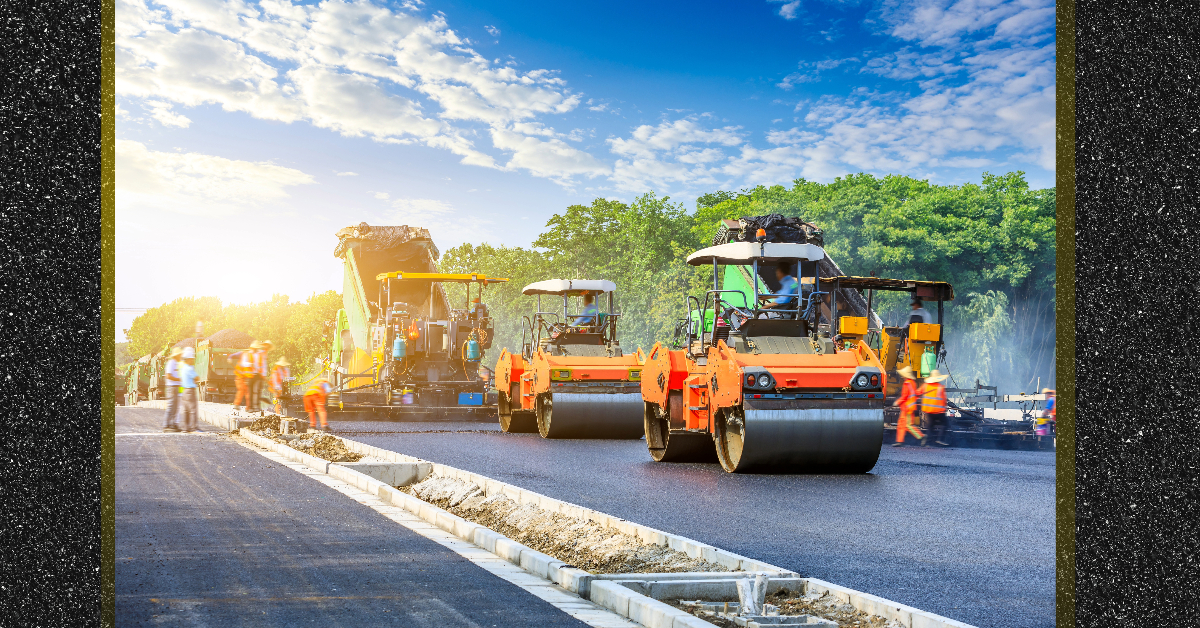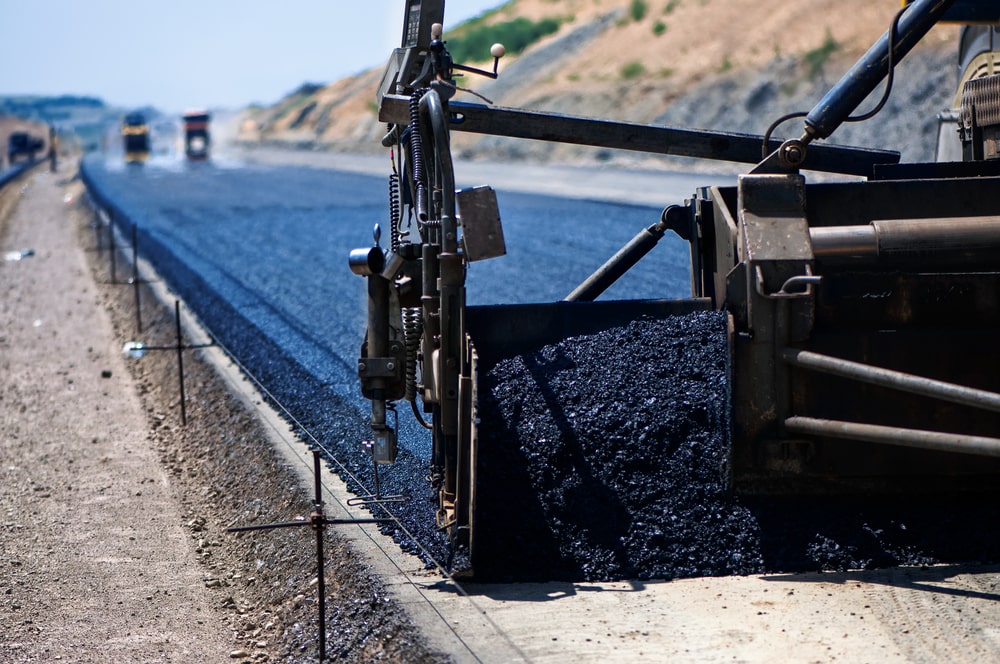Comprehending the Different Kinds Of Asphalt Paving Available Today
In the world of building and construction and facilities, a comprehensive understanding of the numerous kinds of asphalt paving is essential for optimal job outcomes. From the robust Warm Mix Asphalt, designed for high-traffic areas, to the ecologically aware Porous Asphalt that helps with water monitoring, each kind provides distinctive benefits customized to certain demands.

Warm Mix Asphalt
What makes hot mix asphalt a preferred choice for road building and construction and repair services? Warm mix asphalt (HMA) is preferred for its sturdiness, flexibility, and performance under differing problems. Composed of a mix of accumulations and liquid asphalt concrete, HMA is created at high temperatures, usually in between 300 ° F and 350 ° F (asphalt paving acworth ga). This high-temperature application permits optimal bonding and compaction, causing a smooth, resilient surface area that can withstand hefty web traffic tons and unfavorable weather.
HMA's ability to be tailored to details job requirements is one more substantial advantage. Various ranks and formulations can be used to enhance residential properties such as adaptability, resistance to deformation, and longevity. Furthermore, hot mix asphalt can be rapidly installed and opened to website traffic, reducing disturbance during building and construction.
Environmental factors to consider additionally contribute in the choice for HMA. The material is recyclable, and reclaimed asphalt sidewalk (RAP) can be recycled, promoting sustainability in roadway building and construction methods. Generally, hot mix asphalt stands apart as a reliable alternative, effectively supplying a durable, high-performance surface area that fulfills the demands of modern framework.
Cold Mix Asphalt
Cold mix asphalt is a flexible option to hot mix asphalt, specifically matched for certain applications such as patching and surface treatments. This kind of asphalt is produced at ambient temperatures, allowing for much easier handling and application without the need for considerable heating devices.
Usually made up of asphalt solutions or lessenings, chilly mix asphalt can be blended on-site or acquired pre-mixed. Its buildings enable it to bind well with existing pavement, making it an efficient remedy for repairing fractures, fractures, and various other surface flaws. It can be applied in a selection of weather conditions, giving a practical alternative for year-round maintenance.

However, while cool mix asphalt is ideal for temporary repairs, it may not offer the same long life or sturdiness as hot mix asphalt under hefty website traffic problems. Therefore, it is ideal used for low-traffic locations or as a momentary service up until even more long-term repairs can be executed.
Warm Mix Asphalt
While warm mix asphalt has actually long been the requirement for road building, warm mix asphalt (WMA) has become a cutting-edge option that balances performance with environmental considerations. WMA is produced at substantially reduced temperature levels-- typically between 215 ° F and 275 ° F-- contrasted to warm mix asphalt, which is warmed to around 300 ° F. This decrease in temperature not just decreases power usage yet additionally reduces greenhouse gas emissions during manufacturing.
The technology behind WMA entails the use of additives or strategies that allow far better workability at reduced temperatures. These can consist of chemical additives, foaming processes, or a combination of both. Because of this, WMA preserves the needed homes for longevity and efficiency while providing a more eco-friendly choice.

Permeable Asphalt
Porous asphalt represents a forward-thinking strategy in sidewalk style, focusing on both functionality and our website environmental sustainability. This innovative product is especially crafted to enable water to permeate with its surface, efficiently lowering drainage and advertising groundwater recharge. As a result, porous asphalt is an excellent selection for locations prone to flooding or where stormwater management is important.
The structure of porous asphalt varies from typical asphalt, featuring a higher percentage of spaces that help with drain. This residential property not just minimizes surface water build-up however also helps minimize problems like hydroplaning and improves lorry traction during wet problems. asphalt paving learn this here now acworth ga. Additionally, porous asphalt can add to urban warmth island reduction, as it permits greater evaporation and cooling impacts in metropolitan settings
In regards to installment, permeable asphalt calls for mindful consideration of underlying drainage systems to guarantee ideal efficiency. Maintenance usually entails regular evaluations and cleaning informative post up to protect against obstructing from debris, which can impair its permeability. Generally, porous asphalt functions as a lasting paving option that lines up with modern ecological goals, making it an increasingly prominent selection for both private and public projects.
Rubberized Asphalt
Rubberized asphalt is a sophisticated paving product that includes recycled rubber, commonly sourced from scrap tires, into the asphalt mix. This ingenious approach not just improves the performance of typical asphalt but additionally advertises environmental sustainability by recycling waste materials. The enhancement of rubber boosts the flexibility and durability of the sidewalk, making it resistant to cracking and contortion under differing temperature level problems.
Among the substantial benefits of rubberized asphalt is its capability to decrease environmental pollution. The rubber bits soak up audio, causing quieter roads, which is particularly useful in metropolitan locations. This type of asphalt gives improved skid resistance, boosting safety for vehicles.
Rubberized asphalt additionally contributes to prolonging the lifespan of roadway surface areas, causing decreased maintenance expenses in time. This durability is especially useful for high-traffic locations where deterioration are increased. Furthermore, its resistance to wetness infiltration aids lessen the threat of water damage, even more enhancing toughness.
Verdict
In recap, the range of asphalt paving types-- Hot Mix Asphalt, Cold Mix Asphalt, Warm Mix Asphalt, Porous Asphalt, and Rubberized Asphalt-- each accomplish distinctive functions that deal with diverse building and maintenance demands. These choices not only enhance road top quality however also add to sustainability with reduced power usage and improved water management. Recognizing these differences is important for selecting the ideal asphalt kind, eventually making certain effective and effective leading remedies in different settings.
From the robust Warm Mix Asphalt, designed for high-traffic areas, to the ecologically aware Porous Asphalt that promotes water monitoring, each type offers distinct benefits customized to particular demands.Commonly made up of asphalt solutions or lessenings, cold mix asphalt can be combined on-site or purchased pre-mixed.While hot mix asphalt has actually long been the standard for road building and construction, cozy mix asphalt (WMA) has emerged as an innovative alternative that balances efficiency with ecological factors to consider.Rubberized asphalt is a sophisticated paving material that incorporates recycled rubber, commonly sourced from scrap tires, into the asphalt mix.In recap, the variety of asphalt paving kinds-- Warm Mix Asphalt, Cold Mix Asphalt, Cozy Mix Asphalt, Porous Asphalt, and Rubberized Asphalt-- each satisfy distinctive functions that cater to varied building and construction and maintenance requirements.